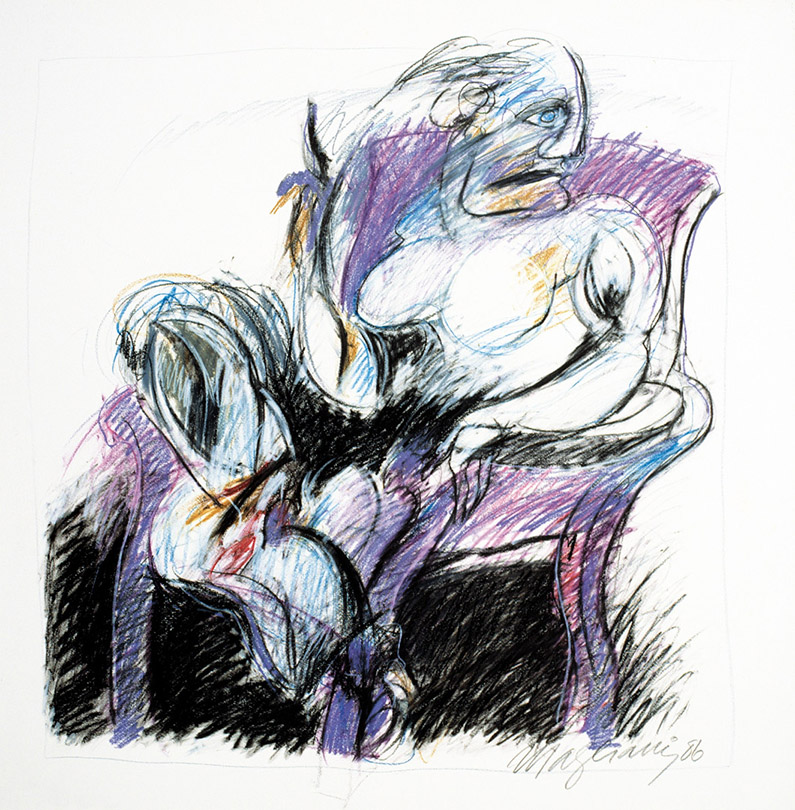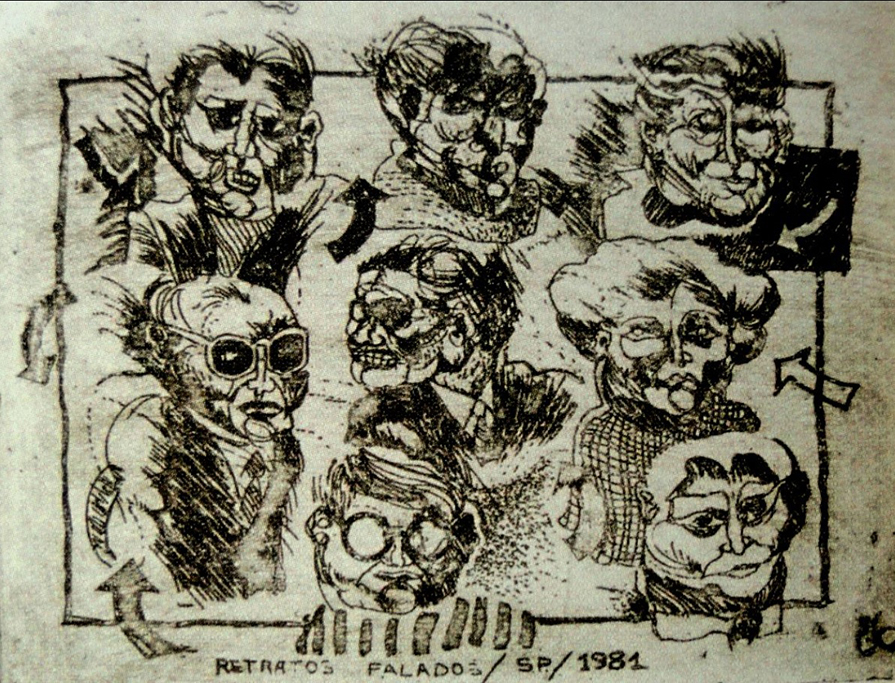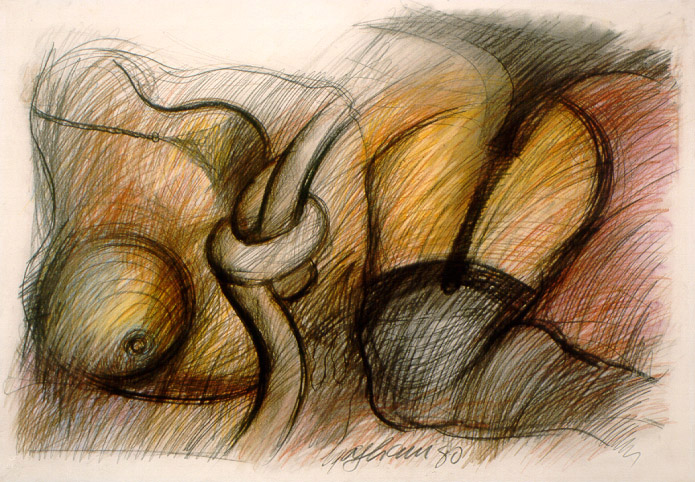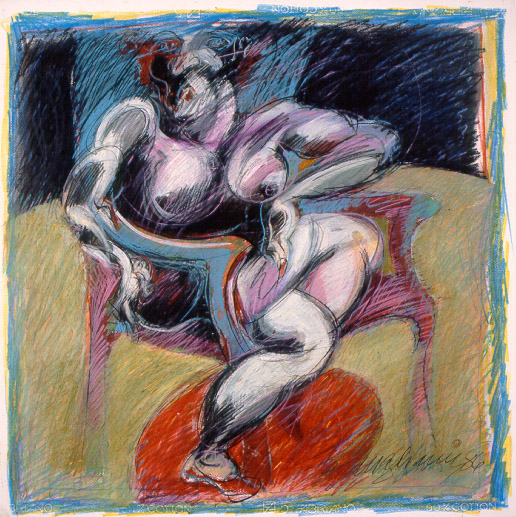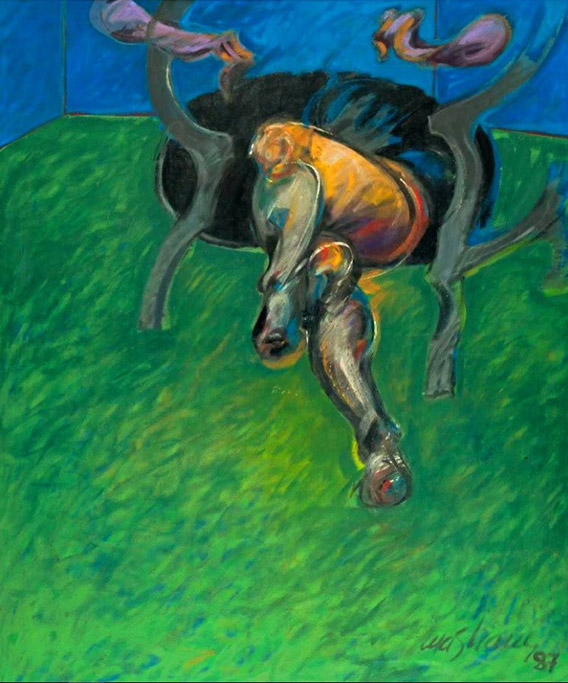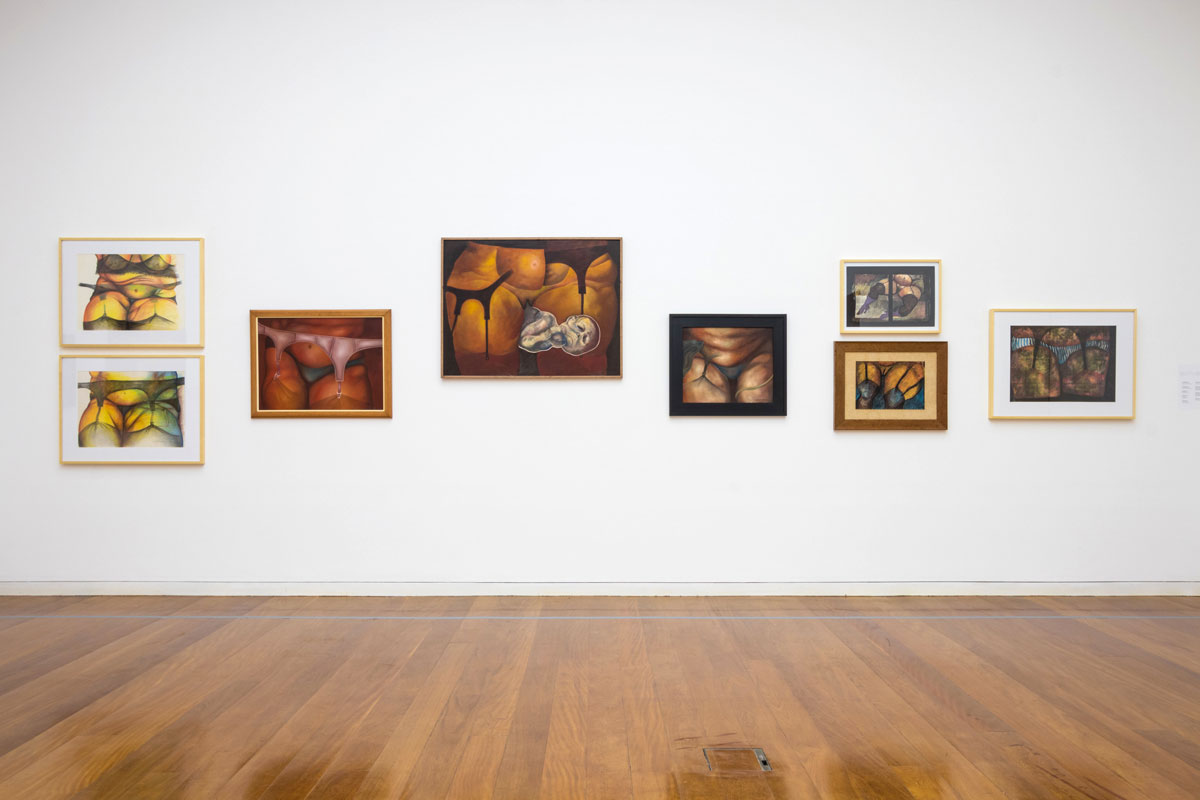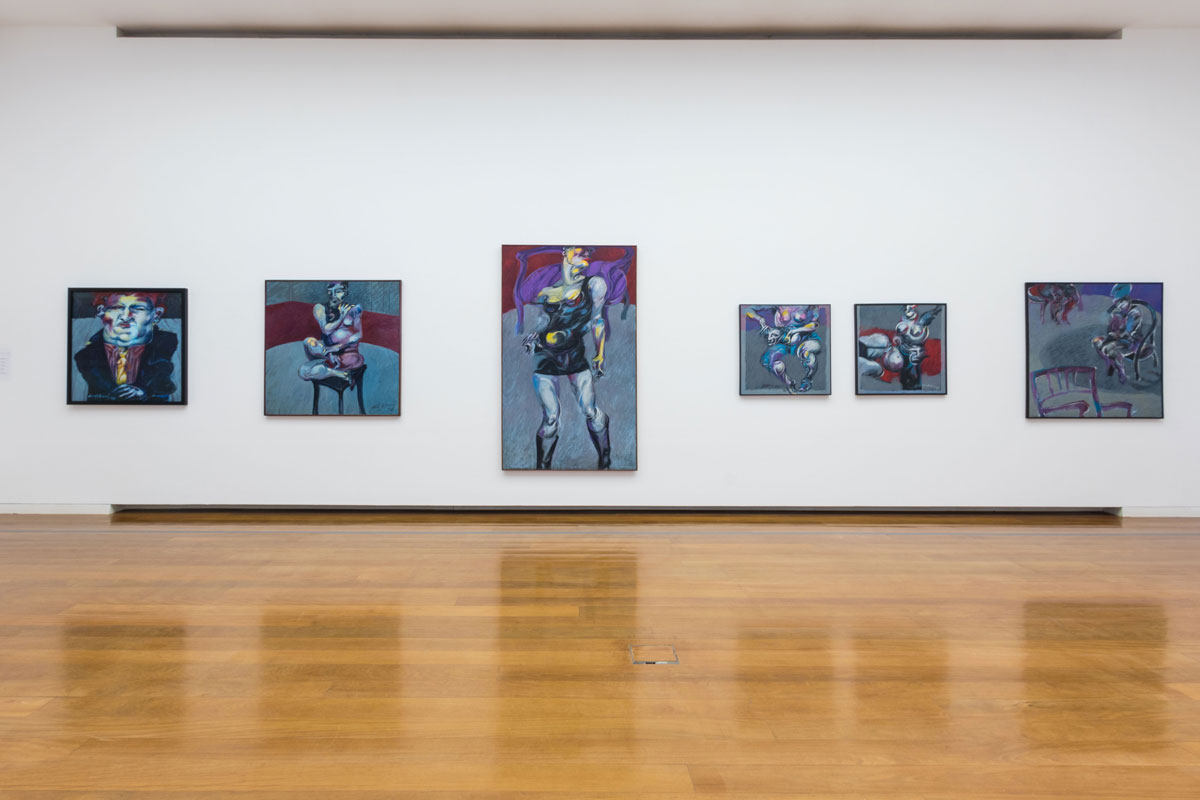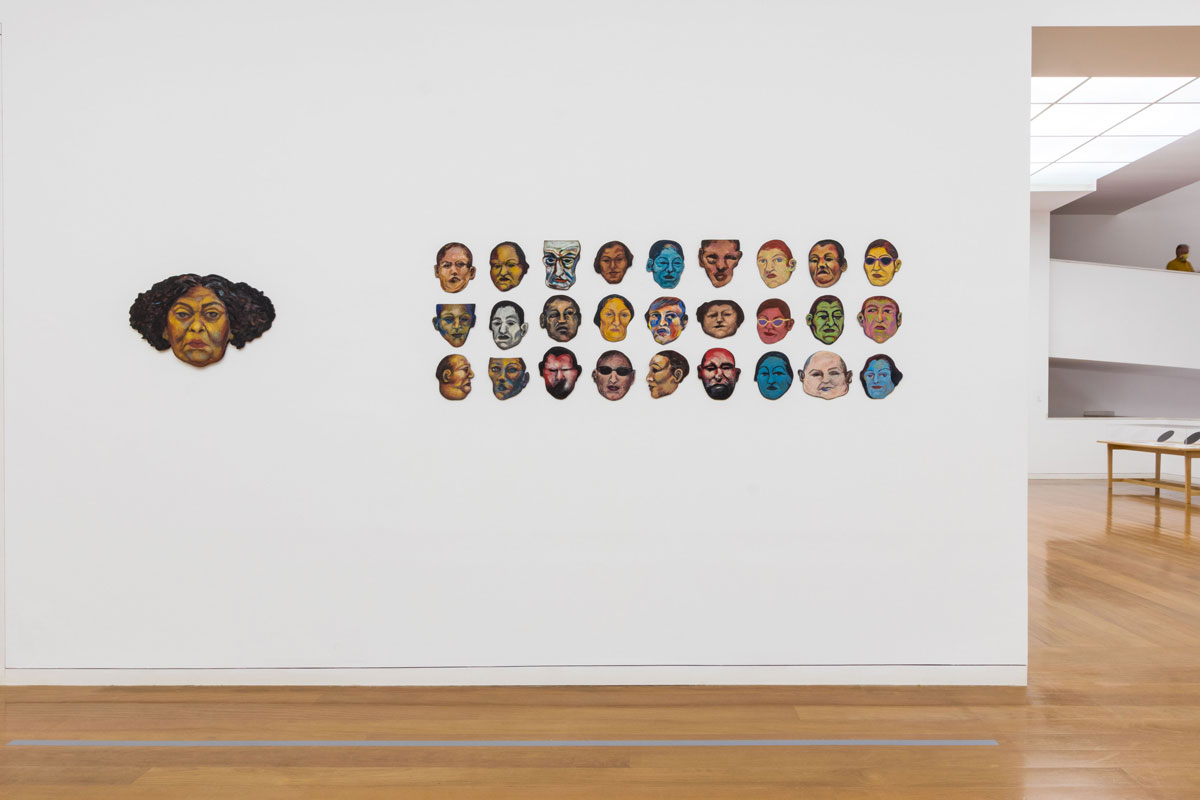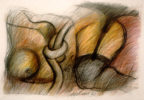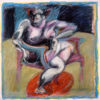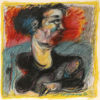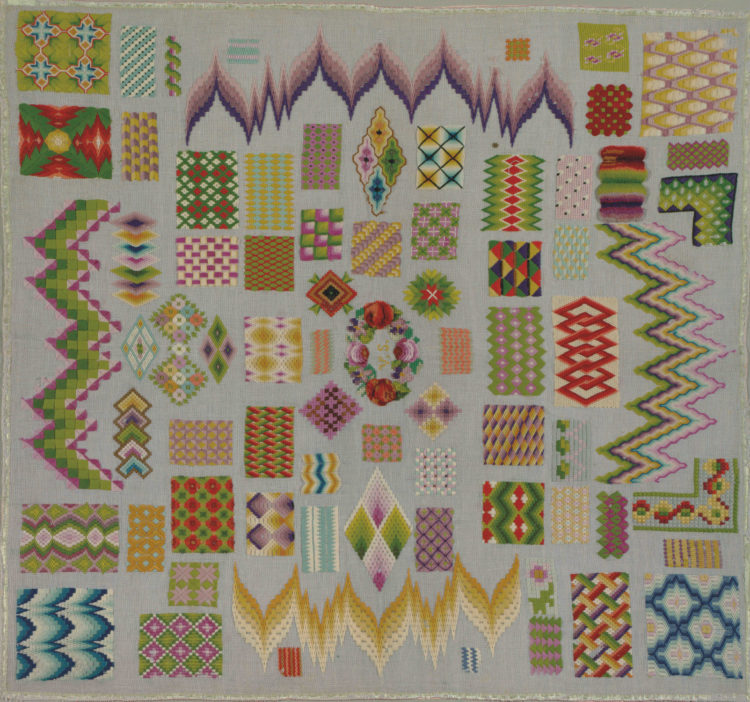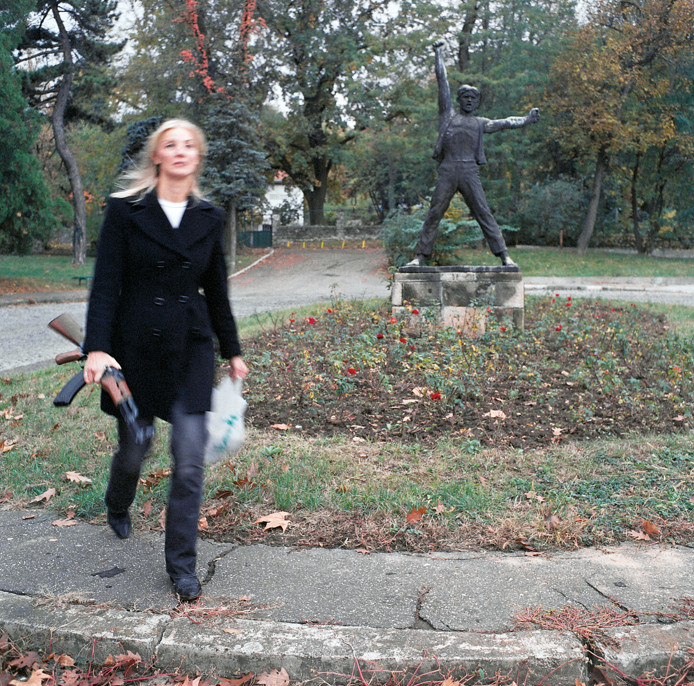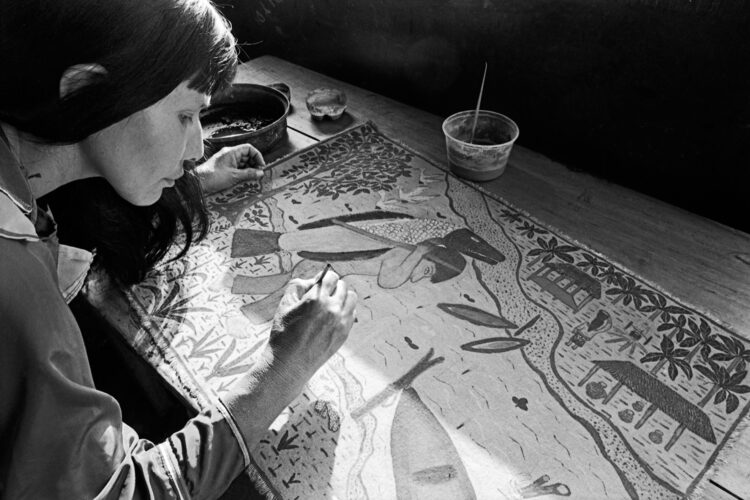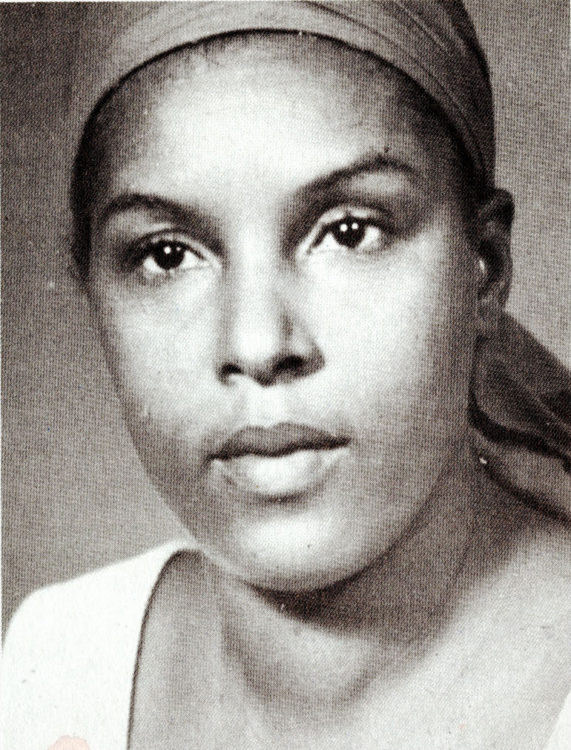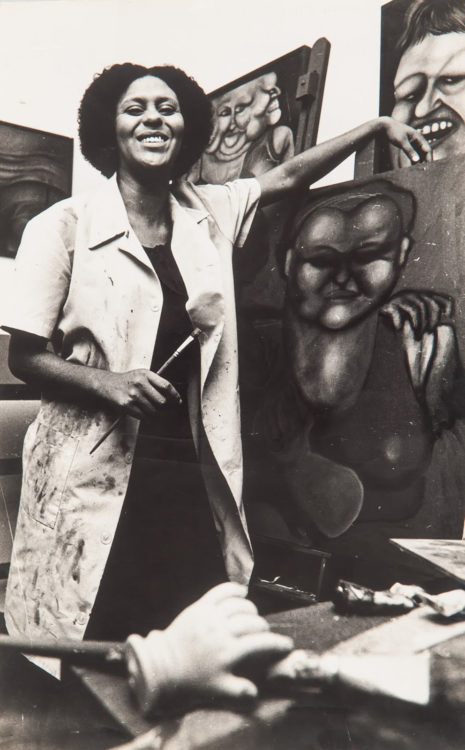Maria Lídia Magliani
Bohns, Neiva, À flor da Pele: Maria Lídia Magliani vive aqui. Colóquio Brasileiro de História da Arte [Under the skin: Maria Lídia Magliani lives here. Brazilian Colloquium of Art History], Pelotas, Universidade Federal de Pelotas, 2020
→Luana Dalmazo, Oliveira, Maria Lidia Magliani: Uma trajetória possível [Maria Lidia Magliani: A possible trajectory], Porto Alegre, TCC, Universidade Federal do Rio Grande do Sul, 2018
→Balthazar Da Silva, Gregory, « O que nos faz humanos? Maria Lidia Magliani e a solidão do corpo em tempos fascistas » [What makes us human? Maria Lidia Magliani and loneliness of the body in fascist times], Redalick, Anos 90 – Revista do Programa de Pós-Graduação em História, Porto Alegre, Universidade Federal do Rio Grande do Sul, 2019
Magliani, Fundação Iberê Camargo, Porto Alegre, March 19 – July 31, 2022
→My Baby Just Cares for Me, Musée imaginaire, Brussels, 2011
→Autorretrato dentro da Jaula, Museu de Arte do Rio Grande do Sul “MARGS”, Porto Alegre, 1987
Brazilian painter, engraver and illustrator.
Maria Lídia Dos Santos Magliani is one of the biggest names among Brazilian artists. She was born in Pelotas in 1946, in the very south of Brazil, into a family of art lovers. She was one of the first Black women to graduate in Arts at the Universidade Federal do Rio Grande do Sul, in 1966. That same year she held her first solo exhibition at Galeria Espaço in Porto Alegre, then a new gallery in Rio Grande do Sul. In 1967 she obtained a postgraduate specializing in painting, which remained, along with engraving, her main mediums throughout her career, though she also explored sculpture, illustration, set design and acting.
In the late 1970s, notably during the Brazilian Military Regime, M. L. Magliani fearlessly celebrated the bodies of large women, including her own : “My intention is to make the figure come out of the canvas, to spill over us, suffocating.” In her compositions, bodies are squeezed as if they are about to burst the limits of their garments and of the painting itself. The neo-expressionist elements that arise between painting and drawing become the protagonists of M. L. Magliani’s poetics, and gathered momentum over the years.
In 1980 M. L. Magliani left Porto Alegre to settle in São Paulo, beginning a new chapter in her professional life, though she continued to regularly visit and exhibit in the South of Brazil. In 1981 she became the first Black woman artist to hold a solo exhibition at Pinacoteca do Estado de São Paulo. In 1985 she participated in the 18th São Paulo Bienal as part of the exhibit Expressionismo no Brasil: Heranças e Afinidades [Expressionism in Brazil: Inheritance and affinities]. In 1988 M. L. Magliani was one of the few Black women artists to be included in the key exhibition A mão afro-brasileira [The Afro-Brazilian hand], curated by artist Emanoel Araújo, founder of Museu Afro Brasil in São Paulo.
Her production is often described as not wanting to deal with race and racism in Brazil. However many facts refute this statement. It is clear that Maria Lidia Magliani very much celebrated her Blackness, in spite of the racism she faced, and that she identified with the global Black Power movement. It is worth mentioning her participation, at the beginning of her career, in 1973, in the exhibition Três pintores negros [Three Black painters], organised by an anti-racist movement in Porto Alegre to honour the memory of the main symbol of Black resistance in the country, Zumbi dos Palmares. She was greatly impacted by her life in Rio Grande do Sul, part of Brazil’s racially prejudiced South Region, the result of the Brazilian government’s “population whitening” agenda in the late 19th and early 20th centuries, following centuries of the massive enslavement of people of African descent.
M. L. Magliani died of cardiac arrest in Rio de Janeiro in 2012 in somewhat poor conditions. In 2022, she was honoured by a major retrospective at Fundação Iberê Camargo in Porto Alegre.
A biography produced as part of “The Origin of Others. Rewriting Art History in the Americas, 19th Century – Today” research programme, in partnership with the Clark Art Institute.
© Archives of Women Artists, Research and Exhibitions, 2022


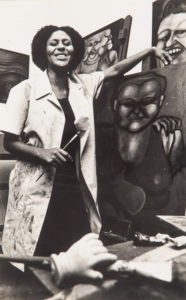
 Magliani | Fundação Iberê
Magliani | Fundação Iberê  Symposium : Magliani and her art | Instituto Ling, March 21, 2022 (Portuguese)
Symposium : Magliani and her art | Instituto Ling, March 21, 2022 (Portuguese) 